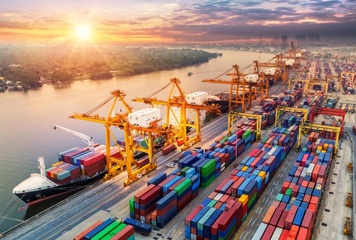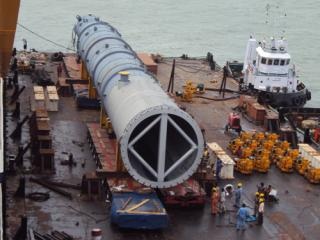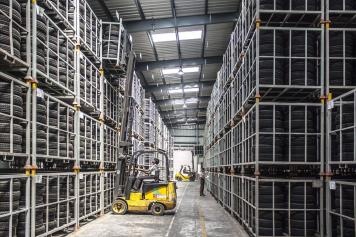Comprehensive digital transformation and greening
Sharing the direction for the logistics industry, MPI Deputy Minister Do Thanh Trung recommends that logistics companies improve their operations, accelerate digital transformation, and invest in new technologies to enhance operational efficiency and competitiveness.
According to Trung, these are significant challenges for Vietnamese logistics companies, mostly small and medium enterprises with limited experience, capital and human resource capabilities.
However, this is also a major opportunity as companies are pushed to implement transformation more quickly, strongly and substantially. Accordingly, companies that better grasp new technology waves will surpass others, just as nations that better understand new technology waves will surpass other nations.
From a consulting perspective, Yoshihiro Wake, director of international market development at Abeam Consulting, states that digital transformation is crucial for the logistics industry. Through digital twinning using big data and artificial intelligence (AI), it will be possible to integrate and analyse industry data such as transport routes and methods. This enables monitoring of the entire supply chain process.
Moreover, digital transformation helps improve productivity, increases transparency, and makes project progress easier to track. This builds trust with customers and partners, assisting companies that implement it to stand out in the logistics market.
According to Dinh Thanh Son, Deputy General Director of Viettel Post, the first step in digital transformation is to reshape the workforce. Based on the practical experience of Viettel Post’s digital transformation push with more than 40,000 employees, the company has started digitising its processes and activities. At the same time, it has invested in all stages using tools like IoT and applications for employees. The company has collected data to analyse and create a network management platform. The most important story is that the application of technology will help identify bottlenecks in the system and then allocate and re-invest resources reasonably.
In addition to digital transformation, Cao Hong Phong, Deputy General Director of Gemalink Port (Gemadep), affirmed the need to build a smart and green port-logistics ecosystem, an industry and global trend. The company is exploiting the Gemalink Port in the Cai Mep - Thi Vai area, a key role in connecting trade between Vietnam and major markets including the US, Europe and Inner Asia.
Regarding the logistics industry, companies in the sector say that for green transformation to be effective, it cannot be done unilaterally. Therefore, they hope for the accompaniment and support of the government and relevant ministries and agencies.
Specifically for port operators, there is a need for support to build and develop green supply chains through developing infrastructure and strengthening the connectivity of ports with other transport systems like roads, railways and aviation to create an efficient logistics network.
According to Tran Thanh Hai, Deputy Director of the Export-Import Department under the Ministry of Industry and Trade, the key to reducing logistics costs is accelerating transport infrastructure connections by investing in logistics centres and dry ports and promoting multimodal transport. Infrastructure is a critical factor driving the development of this industry.
Regarding transport infrastructure, Bui Thien Thu, Director of the Vietnam Inland Waterway Administration, said there needs to be a synchronous connection between the inland waterway system and seaports and road networks. Furthermore, the government needs to increase public investment in inland waterway infrastructure, as it currently accounts for less than 2% of total transport infrastructure investment, even though it handles around 20% of total freight volume annually.
Source: en.nhandan

























